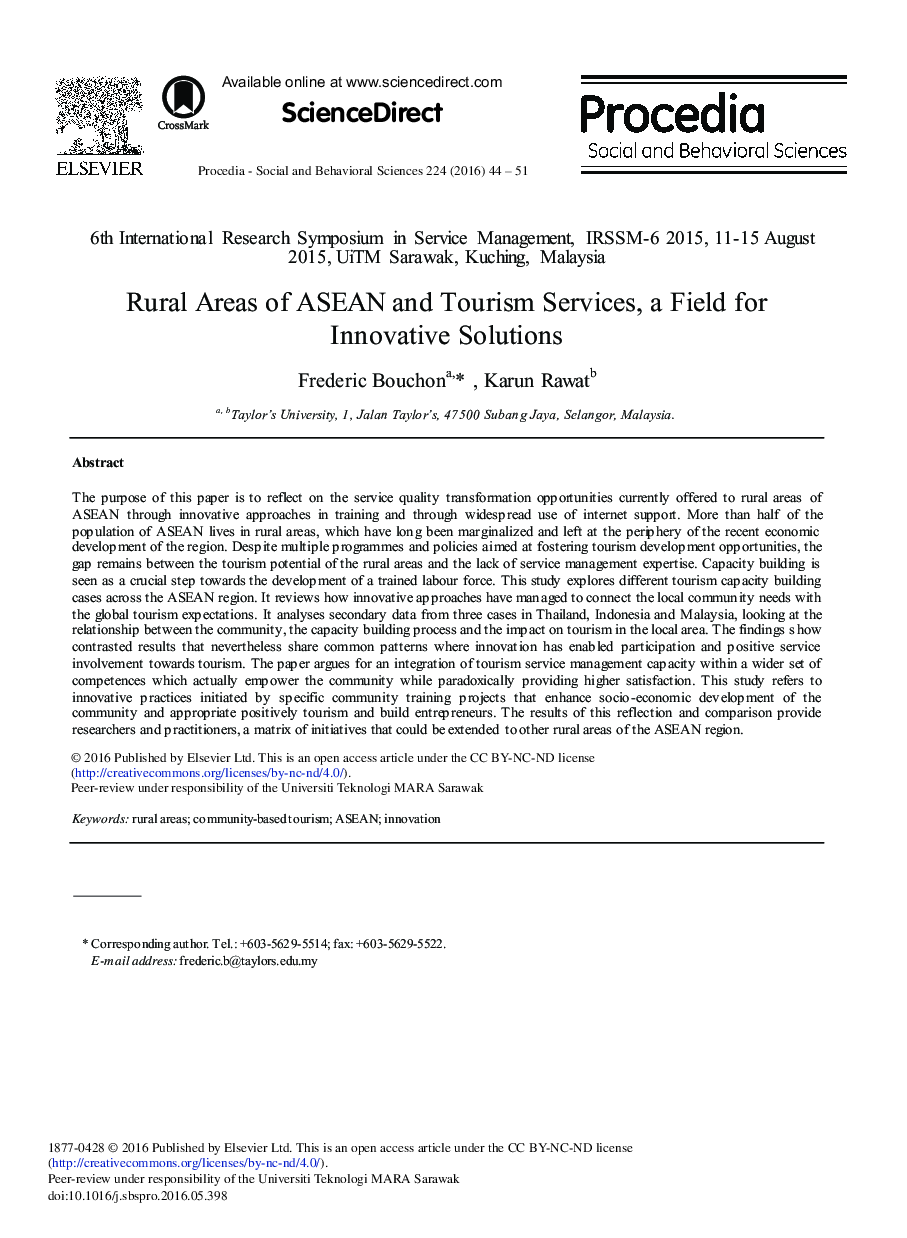| Article ID | Journal | Published Year | Pages | File Type |
|---|---|---|---|---|
| 1107383 | Procedia - Social and Behavioral Sciences | 2016 | 8 Pages |
The purpose of this paper is to reflect on the service quality transformation opportunities currently offered to rural areas of ASEAN through innovative approaches in training and through widespread use of internet support. More than half of the population of ASEAN lives in rural areas, which have long been marginalized and left at the periphery of the recent economic development of the region. Despite multiple programmes and policies aimed at fostering tourism development opportunities, the gap remains between the tourism potential of the rural areas and the lack of service management expertise. Capacity building is seen as a crucial step towards the development of a trained labour force. This study explores different tourism capacity building cases across the ASEAN region. It reviews how innovative approaches have managed to connect the local community needs with the global tourism expectations. It analyses secondary data from three cases in Thailand, Indonesia and Malaysia, looking at the relationship between the community, the capacity building process and the impact on tourism in the local area. The findings show contrasted results that nevertheless share common patterns where innovation has enabled participation and positive service involvement towards tourism. The paper argues for an integration of tourism service management capacity within a wider set of competences which actually empower the community while paradoxically providing higher satisfaction. This study refers to innovative practices initiated by specific community training projects that enhance socio-economic development of the community and appropriate positively tourism and build entrepreneurs. The results of this reflection and comparison provide researchers and practitioners, a matrix of initiatives that could be extended to other rural areas of the ASEAN region.
